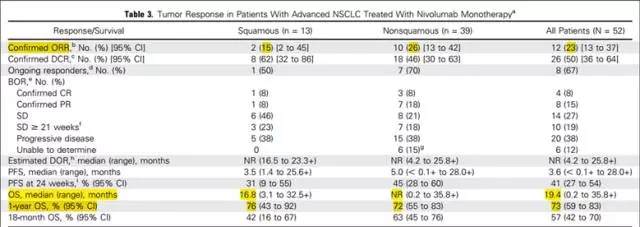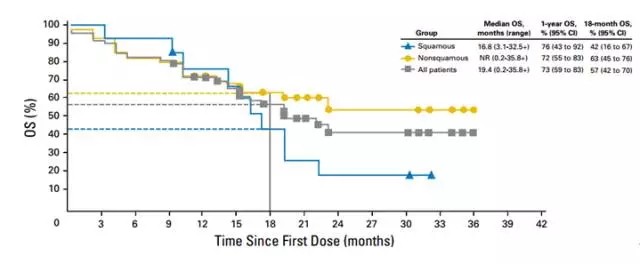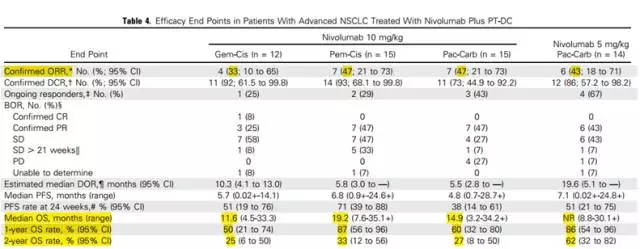Introduction
In
September 2014, the PD-1 inhibitors, turned out to change this status
quo. It has become the treatment of advanced non-small cell lung
cancer another weapon. Of course, this is not a new option for non-
small cell lung cancer targeted drug available.
Lung cancer is by far one of the highest mortality facing mankind
malignant diseases . Whether in medical technology leading US or China
in the largest number of patients , are not outside the case.
How to treat lung cancer? This question has long been the focus of researchers’ unremitting efforts.
With the deepening understanding of lung cancer , treatment options are updated at every step , and even some patients with lung cancer will seem less scary : After genetic testing , or if the ALK mutations in lung cancer patients with EGFR exists , there are several different drugs can be targeted for treatment , the disease can even be stably controlled for several years;
But not all patients with lung cancer can be so lucky. For undergo genetic testing, the result is not available for non-small cell lung cancer targeted drug 3B or 4, and alternative treatment options are not many. Based on clinical results, the first-line treatment options in these patients is essential to combination chemotherapy with platinum -based, effective in 15% to 32%, with a median survival of only 8.1-10.3 months, one year survival rate only 30% to 44 %.
Have to say, this is a depressing data. This data means that this part of the lung cancer patients with an average survival of patients with lung cancer is much lower than EGFR mutations or ALK.
September 2014, PD-1 inhibitors, turned out to change this status quo. It has become the treatment of advanced non-small cell lung cancer another weapon. Of course, this is not a new option for non- small cell lung cancer targeted drug available.
Pound oncology micro-channel public number has published an article, which referred to PD-1 inhibitors is expected to become non-small cell lung cancer patients with first-line treatment.
June 27, JCO magazine published BMS Opdivo of PD-1 inhibitors alone or in combination with chemotherapy detailed data in first-line treatment of lung cancer, followed by spinach will explain in detail all the relevant data, the interpretation of PD-1 inhibitors for the feasibility NSCLC first-line treatment.
Opdivo line monotherapy for non-small lung cancer - 23% effectiveness
Clinical Trial Design: recruit 52 3B or 4 non-small lung cancer patients receiving PD-1 inhibitors Opdivo 3mg / kg, 2 weeks of treatment. It requires no patients received systemic chemotherapy, radiation therapy can be treated or EGFR inhibitors.Results: 12 patients with tumor shrinkage of at least 30 % objective response rate was 23%. Including four patients with complete tumor disappearance. Patients with tumor progression have not 14, the proportion of stable disease was 27%. Therefore, the total disease control rate was 50%. [1]
Year survival rate was 73% (30% -44 % with chemotherapy only), with a median survival of 19.4 months (chemotherapy only about 10 months). Moreover, the side effects of PD-1 inhibitors are also much lower than chemotherapy. Specific data are as follows:


In addition, the survival data can vaguely see a plateau (i.e., long-term efficacy, PD-1 inhibitors in patients with long-term effective), especially for patients with lung adenocarcinoma. PD-1 inhibitors have the potential to achieve a therapeutic effect in patients with advanced lung cancer so that clinical cure, PD-1 inhibitors is the most attractive place.

Keytruda line monotherapy for non-small lung cancer
June 16, Merck announced a major new progress in Phase III clinical trials Keynote-024: In the non-small cell lung cancer patients with high expression of PD-L1, the use of patient Keytruda in progression-free survival and overall survival respect of the use of chemotherapy than a significant advantage.
In other words: For PD-L1 expression in patients with advanced non- small lung cancer, first-line treatment using Keytruda live longer than chemotherapy, and live well. Due to good efficacy data, an independent organization announced Keytruda referee victory before the patient is receiving chemotherapy treatment can accept Keytruda hope that these patients have good results.
Opdivo line combination chemotherapy for non-small lung cancer - 43% effectivenessFor the amazing effect of PD-1 inhibitors like to take a lot of drugs through its east, to get data on the effect of a 1 + 1> 2. PD-1 inhibitors Opdivo and Keytruda have recently published clinical data in combination with chemotherapy for non-small cell lung cancer.
Clinical Trial Design: recruit 56 patients were divided into four groups to receive different combinations of PD-1 in combination with chemotherapy is:
Group A: 12 patients with squamous cell carcinoma receiving Opdivo 10mg / kg + gemcitabine (Gemzar) and cisplatin;
Group B: 15 patients received non- squamous Opdivo 10mg / kg + pemetrexed + cisplatin;
Group C: 15 patients with lung cancer (including squamous and non-squamous) accepts Opdivo 10mg / kg + paclitaxel and carboplatin;
Group D: 14 patients with lung cancer (including squamous and non-squamous) accepts Opdivo 5mg / kg + paclitaxel plus carboplatin
Results : A, B, C, D groups were 33 %, 47 %, 47 % and 43 % of patients with tumor shrinkage of at least 30 % a year survival rates were 50 %, 87 %, 60 % and 86 %, respectively median survival was not reached and 11.6,19.2,14.9 months [ 2 ] .
Details as follows:

We now know the efficacy of PD-1 inhibitors is just a tip of the iceberg of. In the future there will be more patients benefit from PD-1 inhibitors, not only lung cancer, not just second-line treatment.
For non-small cell lung cancer, in our opinion, PD-1 inhibitors alone or in conjunction with the first-line treatment program has been moving a step closer. Among them, the first -line treatment approved the winner may be used for PD-L1 Keytruda strong positive lung cancer patients with non-small cell.
PD-1 inhibitors need is more time and more to benefit patients.
References:
1. Gettinger, S., et al., Nivolumab Monotherapy for First-Line Treatment of Advanced Non-Small-Cell Lung Cancer. J Clin Oncol, 2016.2. Rizvi, N.A., et al., Nivolumab in Combination With Platinum-Based Doublet Chemotherapy for First-Line Treatment of Advanced Non-Small-Cell Lung Cancer. J Clin Oncol, 2016.
3. http://meetinglibrary.asco.org/content/167088-176
4. http://meetinglibrary.asco.org/content/163524-176
Souce: NovoPro 2016-07-08
